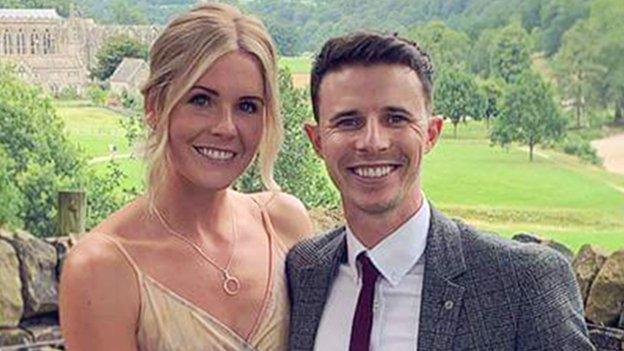Covid-19: Wedding industry reacts to latest restrictions
- Published
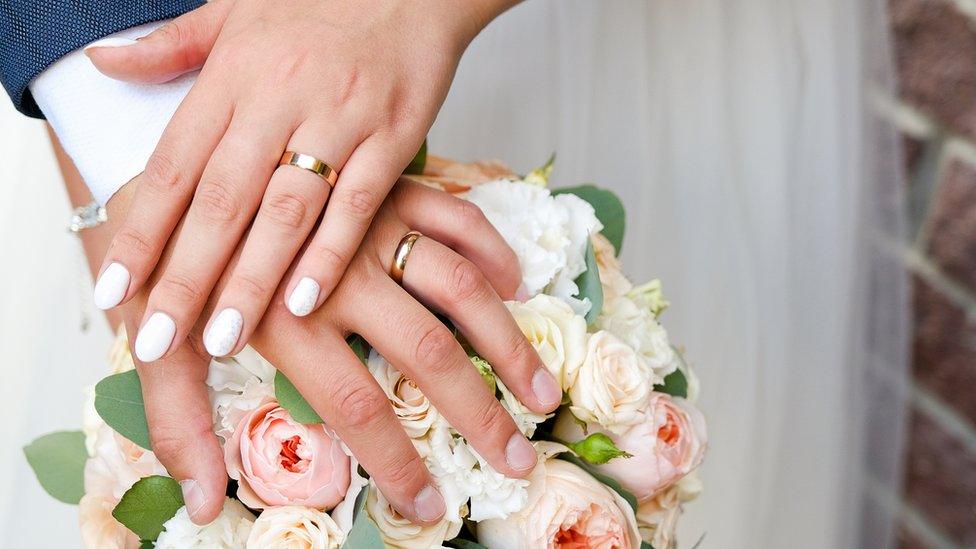
People working in the wedding industry have spoken of their frustration at the continuing threat to their livelihoods.
The latest guidelines for England, which were announced on Wednesday, reduce the number of people allowed to attend weddings to 15 - down from 30.
For those who provide services like photography and planning, the restrictions have been "devastating".
One planner said she had gone from having 65 weddings in her diary, to just one.
The government has published guidelines on how to have a ''Covid-secure'' wedding in England, external, which includes keeping ceremonies as short as possible and not providing food or drink for those at the ceremony, "unless required for the purposes of solemnisation".
'A lot of venues will have to close'
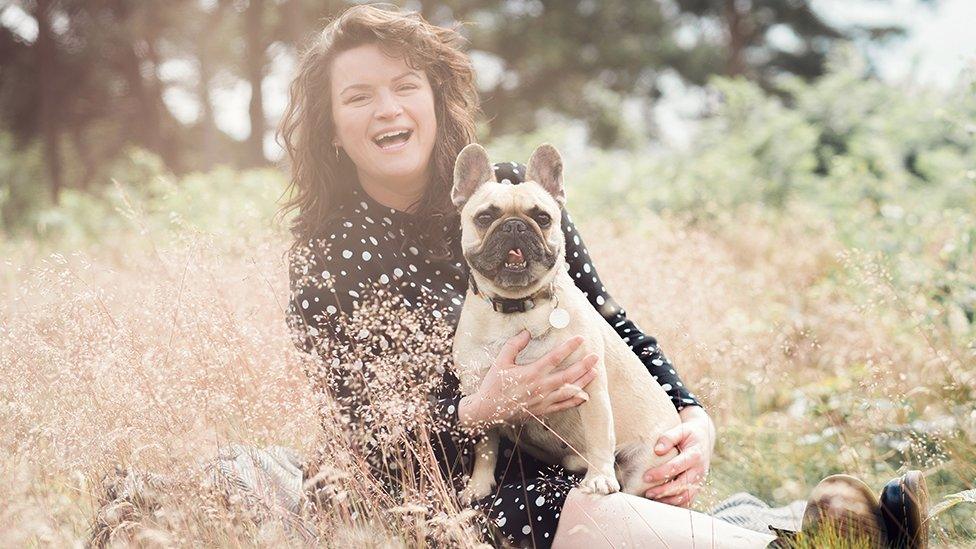
Laura May says she has been very stressed and anxious
Photographer Laura May, who is based in Shropshire, said the further reduction in numbers had made it "hard for couples to know what to do".
"The announcement is a blow and many will feel upset, especially if they've started to plan a wedding with 30 people but now have to change it again," she said.
"But, small weddings can be super-gorgeous and intimate and be a true reflection of the couple, and can be an ideal way to get the legal bit done this year - so life doesn't have to be put on hold - with a view to having a party in the future to celebrate properly."
She has had just two weddings since they were allowed to resume - from 1 August - with restricted numbers.
"Some moved to later this year, but a lot have had to rearrange a second time which has been just as frustrating for them."
She began running her business full time four years ago, but did not qualify for the grants eligible for the self-employed and had to take out a bounce-back loan for support during the pandemic.
As she charges per hour, covering smaller weddings will affect her income.
"I've been very stressed, I've been sad, anxious for my couples, for my business," she said.
The continuing restrictions also mean she is beginning to worry about next year.
"If there's still the guest restriction, it is going to be really tough for wedding suppliers to survive moving couples again," she said
"Couples will have to really consider if they want to get married or to move their date again.
"I have had couples say they will still pay this year but I have said no because I'd rather have the money knowing the wedding will be going ahead, rather than have to think I've got to give the money back.
"I imagine a lot of venues will have to close if people keep rescheduling," she said.
'It is really frustrating'
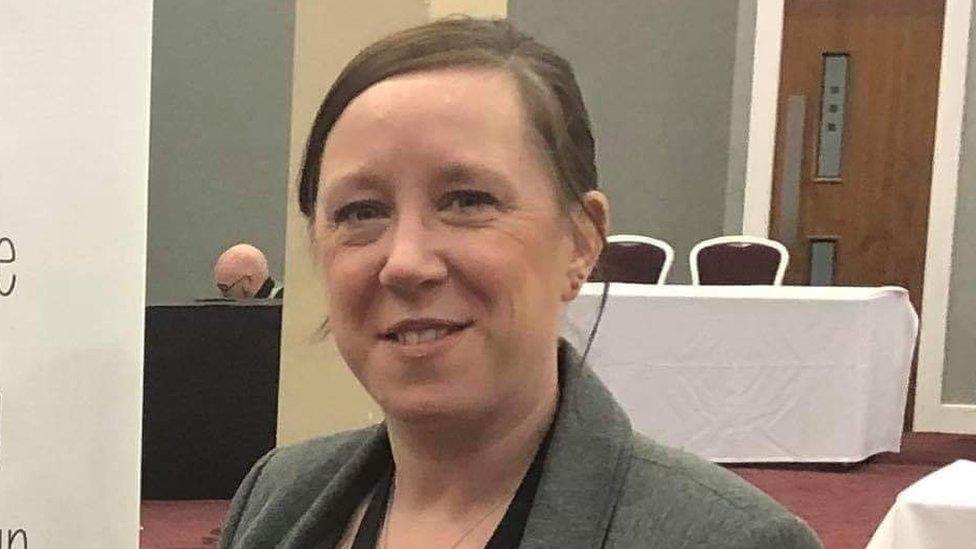
Clair Simpson says she has lost thousands of pounds due to cancelled wedding fairs
Staffordshire-based wedding planner Clair Simpson said the guidelines were confusing.
She had 65 weddings in her diary for this year, with the likelihood that more would book, but said she now has just one.
"It is really frustrating," she said.
"When you bear in mind you can go to the pub and have 30 people in a room - in a pub with two or three rooms you could have 60 to 90 people in the building - but at a wedding you can have 15 at most.
"They could have more people and still distance; maybe they could be looking at a restriction by the size of room rather than numbers."
Ms Simpson also runs wedding fairs, and said she had now lost out on business for two seasons because of the coronavirus restrictions.
"I can be earning £3,000 per season, but I have lost that twice over now," she said.
"Weddings-wise, I could be doing, if I am working at full capacity, in excess of three to four weddings a week."
'I don't think the industry will survive another summer like this'
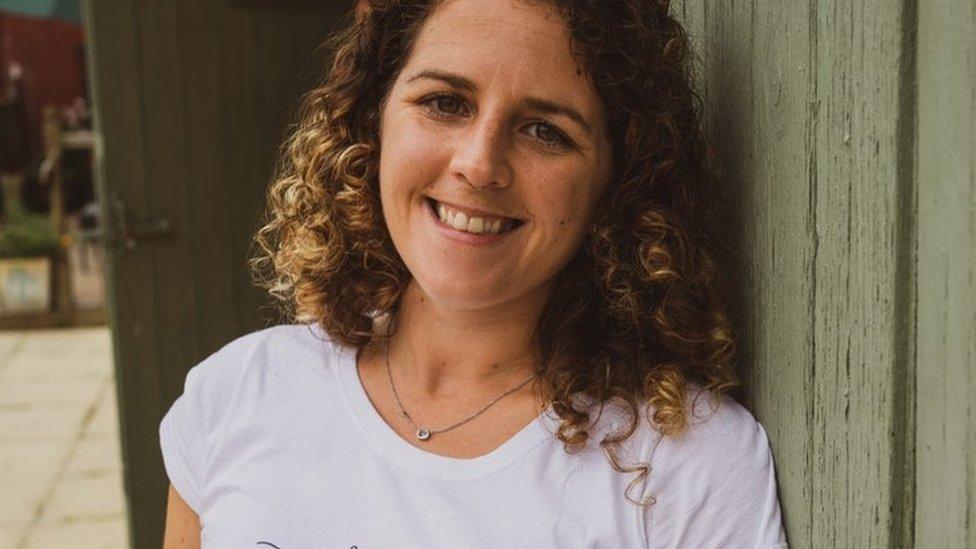
Wedding planner Becca Grubb's own wedding is unlikely to go ahead due to the restrictions
Becca Grubb, who set up the Shropshire Wedding Planner during lockdown, is herself due to marry in December.
"We were going to have the ceremony on 29 December then go to a local hotel for a meal for 30 people," she said.
"It was fine, seemed perfect, we were due to pay all deposits... but I don't think it can go ahead now. It is quite devastating."
She said she was also concerned about the long-term impact on the industry.
"I really feel for the wedding industry. I have friends who are photographers, florists who have all lost a year of business. It is heartbreaking.
"I don't think the industry will survive another summer like this.
"They can't make up the money lost from weddings next year as there are only so many you can do in a year."
Ms Grubb, who still works four days a week in HR, said she was "lucky" compared to other businesses.
"[The government] keep chopping and changing," she said.
"There is no certainty whatsoever. We are totally in the dark, which is stressful and anxiety-inducing in itself."
How can I support my couples if I'm in the dark?
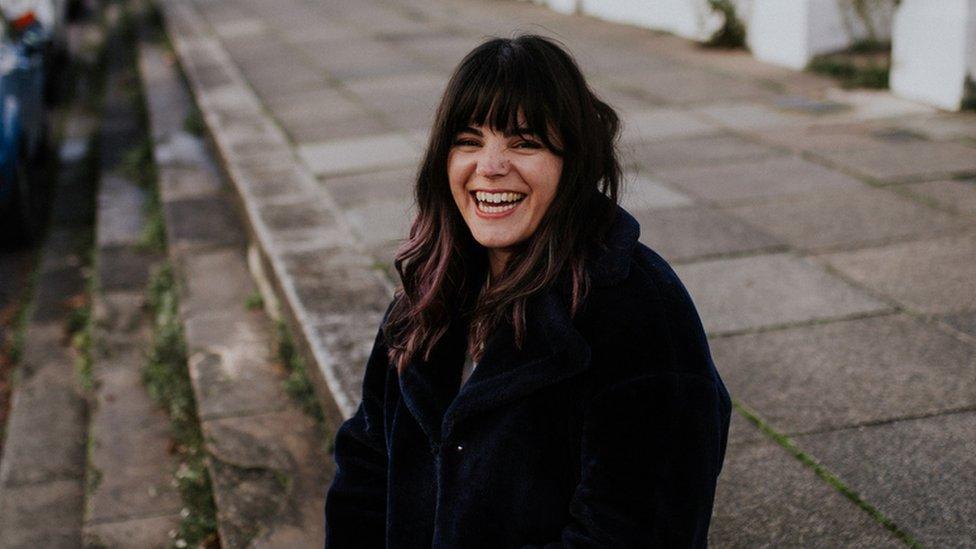
Manon Pauffin said working on smaller weddings was not as financially viable
Manon Pauffin, a Brighton-based photographer, said: "We are the forgotten industry. Most other industries have gone back to work but not us."
She normally tries to work about 20 ceremonies each year but said she had just one booking for a smaller wedding this year.
"As much as I love intimate weddings and elopements, it is not the same to get £300 for a job compared to £2,000," she said.
"It is always just as special and I will devote the same amount of energy and care, but from a business perspective it is difficult."
Mrs Pauffin already had a part-time job but has increased her shifts due to the uncertainty.
She said the industry needed clear guidance on what will happen in 2021.
"For at least a couple of months now we've all known there wasn't going to be any weddings this year, not like before anyway, and that's fine - there's nothing we can do about that - but what we need is a clear plan for next year," she said.
"Up until now we've had to react to whatever the situation was and scramble to find solutions; what we need is to be able to prepare.
"How can I do what's best for my business if I don't have any idea of what the plan is for next year? How can I support my couples if I'm in the dark?"

SOCIAL DISTANCING: What are the rules now?
LOOK-UP TOOL: How many cases in your area?

Follow BBC West Midlands on Facebook, external, Twitter, external and Instagram, external. Send your story ideas to: newsonline.westmidlands@bbc.co.uk , external
- Published14 July 2021

- Published7 September 2020
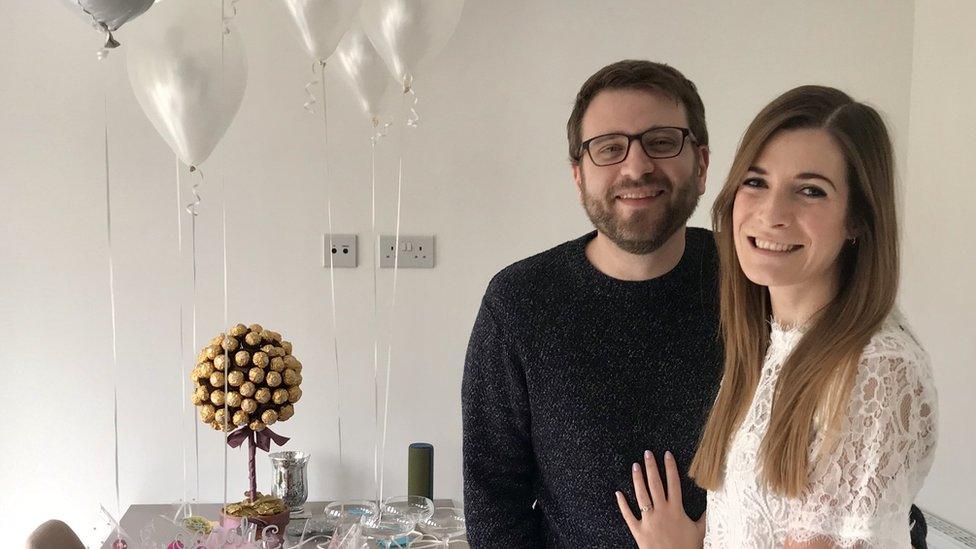
- Published3 September 2020
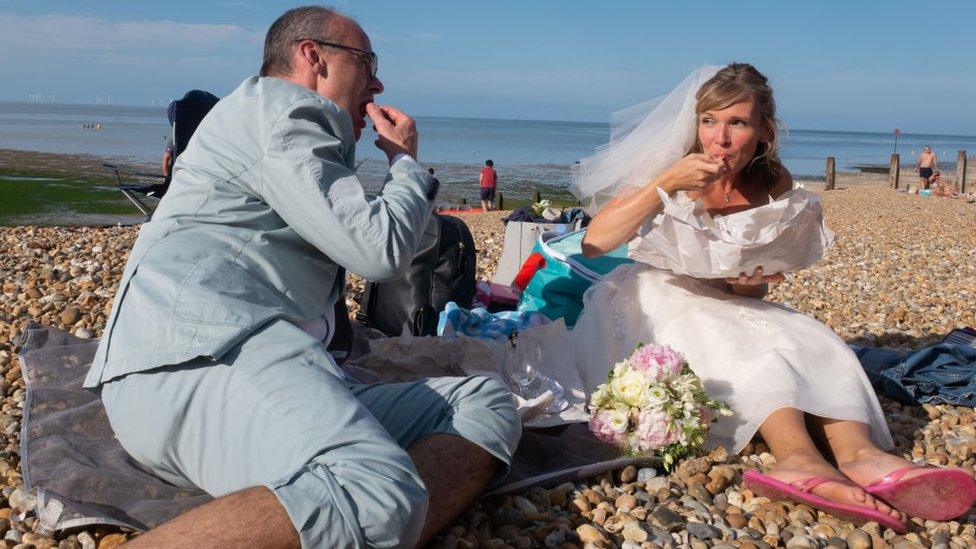
- Published28 August 2020

- Published19 July 2020
